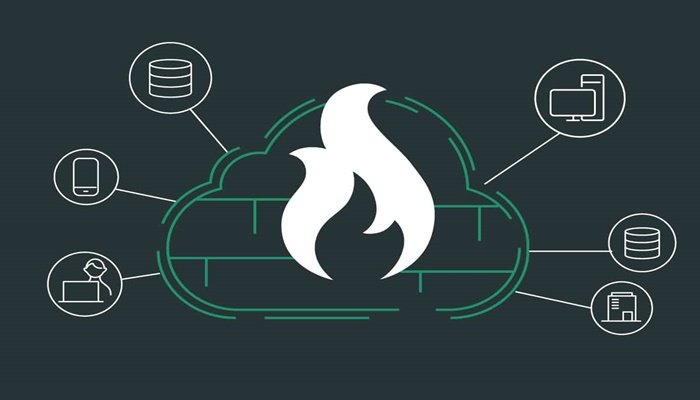Cloud firewalls are becoming necessary security equipment for all types of enterprises. The network perimeter is always growing in the era of cloud computing when traditional firewalls and data cannot adequately protect digital assets, and other mission-critical assets are accessed over the cloud. When used in conjunction with other security solutions, cloud-based firewalls help businesses preserve their constantly increasing network perimeter and provide safe access to vital resources. A virtual device called a cloud firewall guards cloud resources against intruder attacks. Below, you can see about cloud based firewalls:
Need for Firewalls:
In the cloud network, firewalls carry out several crucial tasks. However, it can also be used for more sophisticated, cloud-based applications. Key functions include:
- Following traffic into and out of the cloud platform is one of the main tasks.
- Preventing access to identities that are not authorized. Permitting authorized individuals to access securely.
- Visibility of an application’s overall cloud resources, including several cloud configurations.
- All endpoints receive the firewall security policies.
- Cloud resources are divided into sections to safeguard private information and restrict traffic from the east and west.
- Automated threat reporting for audits and threat response.
How Cloud Firewalls Work?
Cloud firewalls, like on-premises firewalls, detect and manage applications, give access based on user-defined policies, and prevent known and unknown dangers from accessing the network boundary.
Cloud firewalls are virtual devices in a cloud environment. They can inspect and filter network traffic between virtual machines, containers, and other cloud resources and the public Internet.
Firewalls analyze traffic at the network layer to protect the cloud environment from threats such as malware, data breaches, and denial of service.
Cloud firewalls monitor network and application traffic across several cloud environments. Advanced solutions provide automation and centralized management, allowing developers to integrate security across the cloud development lifecycle. Many cloud firewalls are compatible with modern continuous integration and delivery processes.
Benefits of Cloud Firewall
There are several advantages to adopting cloud-based firewalls. Here are some notable advantages:
Migration Security
A cloud firewall can filter traffic from various sources, including online, virtual networks, tenants, and virtual data centers. It can also ensure the security of connections between physical data centers and the cloud, which is extremely useful for enterprises searching for a way to migrate current solutions from an on-premises location to a cloud-based infrastructure.
Scalability
Cloud-based firewalls are designed to be easily scalable, allowing them to meet any possible demand increases. These software-based firewalls are infinitely scalable and automatically adjust to increase bandwidth. On site firewalls are more difficult to maintain and require increased scalability.
Availability
Cloud-based firewalls can be available 24 hours a day, seven days a week, as long as your infrastructure includes redundant power, HVAC, internet access, and a backup plan in case of a site failure. In contrast, on-premise firewalls completely depend on your existing IT infrastructure, might be more difficult to operate, and are more expensive to maintain and support.
Summing It Up
In the age of digital transformation, cloud firewalls are essential for all types of enterprises. Organizations may boost their security posture by selecting the solution for their rapidly growing endpoints. Cloud firewalls enable enterprises to protect assets in the public cloud. They regulate access and connect with IAM systems to prevent illegal access and protect private information.

